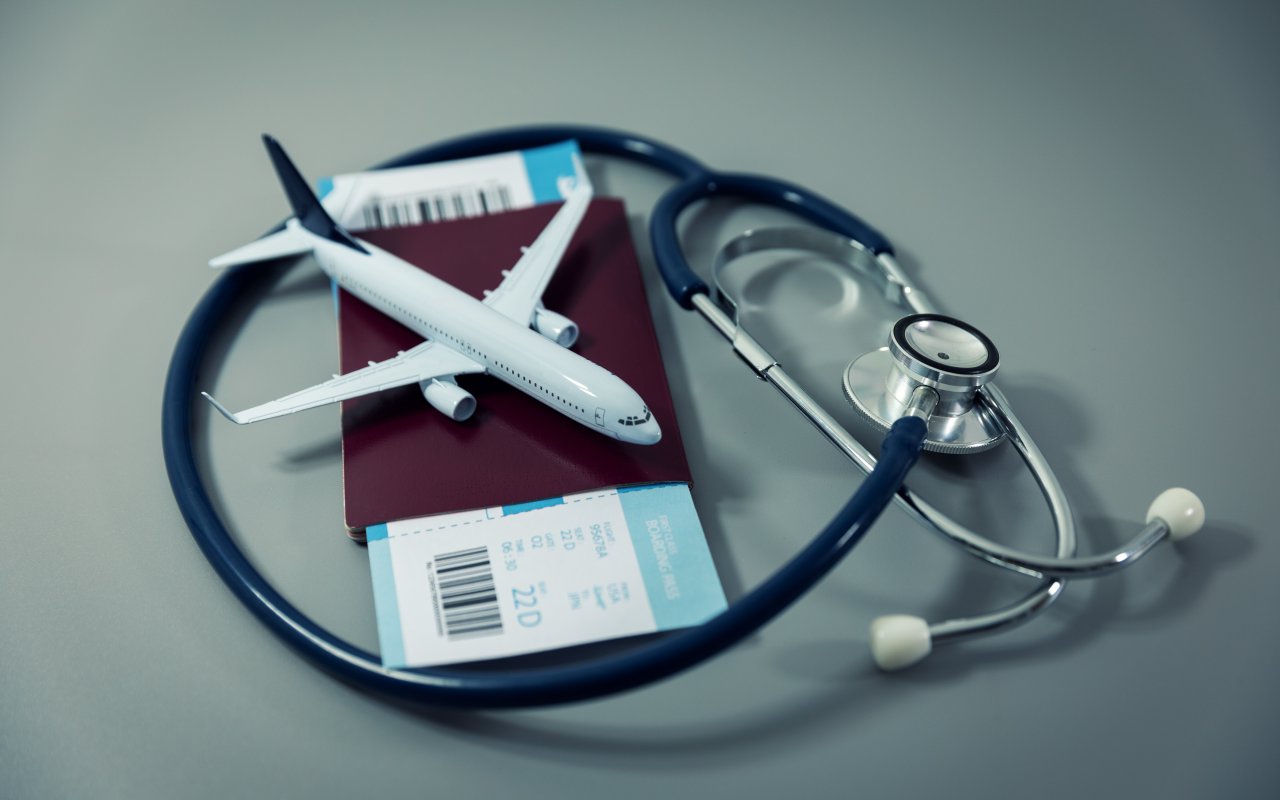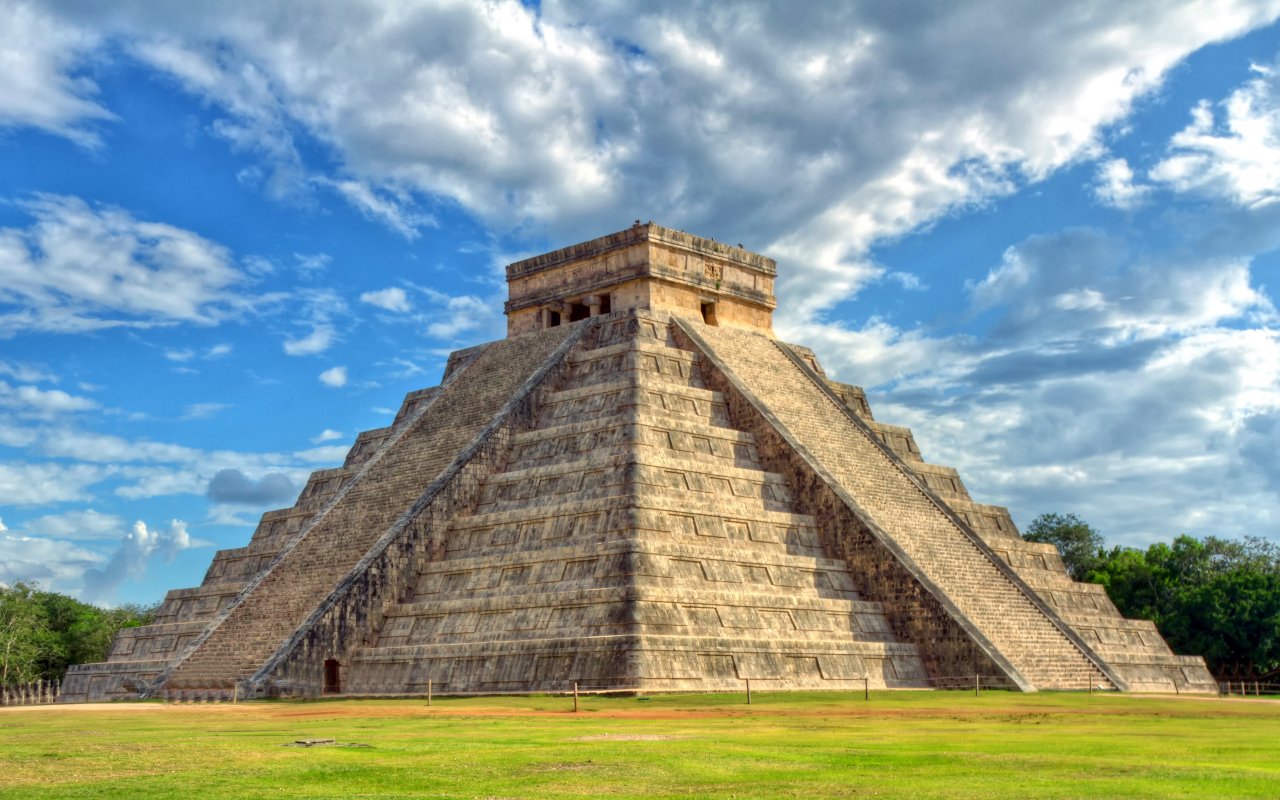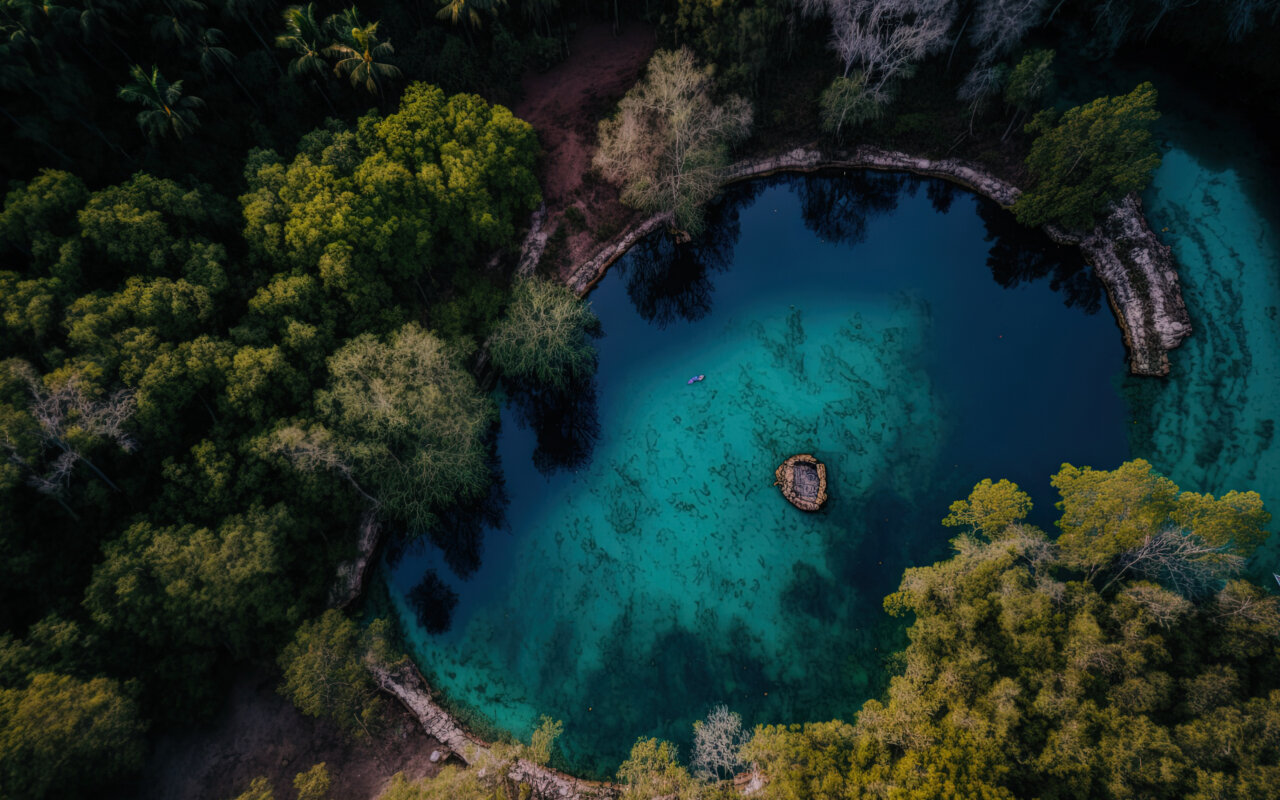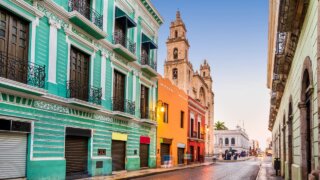Before you travel
Required vaccinations
No specific vaccinations are mandatory for international travelers entering Mexico, regardless of your country of origin. However, staying current with routine vaccinations is always a good practice before any international travel.
Recommended vaccinations
Essential vaccinations for all travelers
Hepatitis A is recommended for all travelers to Mexico, as the virus can be transmitted through contaminated food or water. For children, vaccination is typically given from one year of age. If you were born before 1945, spent your childhood in a developing country, or have had jaundice, an antibody test may help determine if vaccination is necessary.
Make sure your routine vaccinations are up to date, including diphtheria, tetanus, and poliomyelitis (DTP). It’s also important to verify your measles, mumps, and rubella (MMR) vaccination status, especially if you were born after 1957. Stay current with COVID-19 boosters according to your health authority’s guidelines.
For extended or rural stays
If you’re planning to travel to areas with basic sanitary conditions or spend extended time in rural regions, typhoid vaccination is recommended. This is particularly important for children from two years of age onwards.
Rabies vaccination should be considered as a preventive measure for prolonged and isolated stays, particularly if you’ll be in contact with animals or in remote areas where immediate medical care might not be accessible. For children, this is recommended as soon as they can walk.
Hepatitis B vaccination is advised for frequent or extended stays in Mexico. For children, this can be administered from the first month of life.
Special considerations for children
All routine childhood vaccinations from your country’s immunization schedule should be up to date before traveling. For extended stays, BCG and measles vaccines are recommended according to age-appropriate schedules.
It’s important to complete all vaccinations at least 2-4 weeks before departure to ensure optimal protection.
Health precautions during your stay
Food and water safety
The most important rule to remember is that tap water is not safe to drink throughout Mexico. Use bottled water for drinking, brushing teeth, and preparing infant formula. Avoid ice cubes unless you’re confident they’re made from purified water, and choose sealed bottled beverages whenever possible.
When it comes to food, stick to freshly cooked, hot meals. Avoid raw or undercooked seafood and meat, and peel fruits and vegetables yourself when possible. Choose busy, reputable restaurants where food turnover is high. While street food can be delicious and part of the authentic Mexican experience, exercise caution, especially with raw salsas and unpasteurized dairy products.
If you’re traveling with an infant, you’ll be pleased to know that baby formula and infant milk are readily available throughout Mexico, with both national and international brands on offer. Always verify the quality and expiration date, and prepare formula using bottled water only.
Major health risks
Mosquito-borne diseases
Mexico has areas where malaria is present, though the risk varies significantly by region and elevation. Malaria risk exists in areas below 1,000 meters elevation, including parts of the west coast south of Álamos (through Sinaloa, Nayarit, Jalisco, Colima, Michoacán, Guerrero, and Oaxaca), the east coast south of Tampico (through Veracruz and Tabasco), the Yucatán Peninsula (Campeche, Yucatán, and Quintana Roo), and southern Chiapas near the border regions.
The good news is that there’s no malaria risk in Mexico City, the central highlands, or areas above 1,000 meters elevation. The risk in popular tourist resort areas like Cancún and Playa del Carmen is extremely low.
Beyond malaria, dengue, Zika, and chikungunya are present throughout Mexico, particularly in coastal and tropical areas. Unlike malaria-carrying mosquitoes, the mosquitoes that transmit these diseases bite during daylight hours, making daytime protection essential.
To protect yourself from mosquito-borne illnesses, use EPA-registered insect repellents containing DEET, Picaridin, IR3535, or oil of lemon eucalyptus. Wear long-sleeved shirts and long pants, especially during dawn and dusk. Stay in accommodations with air conditioning or screened windows when possible. Mosquito nets and repellents are readily available in local pharmacies throughout Mexico.
Rabies
Rabies is present in Mexico and is primarily transmitted by dogs, though any mammal can carry the disease. The virus can be transmitted through bites, scratches, or even licks on broken skin or mucous membranes.
Avoid contact with stray animals during your trip. If you are bitten or scratched by any animal, immediately wash the wound thoroughly with soap and water for at least 15 minutes. Seek medical attention urgently, even if you’ve been previously vaccinated against rabies. Anti-rabies treatment centers are available in major cities throughout Mexico. You can contact them at +52 (55) 607-4093 or visit local hospitals for immediate care.
Traveler’s diarrhea
This is the most common health issue for travelers to Mexico, affecting between 30% and 70% of visitors. The condition is usually caused by consuming contaminated food or water.
Prevention is straightforward: follow the food and water safety guidelines mentioned earlier, wash your hands frequently with soap or use alcohol-based hand sanitizer, and carry anti-diarrheal medication and oral rehydration salts as a precaution.
Most cases of traveler’s diarrhea resolve within 3-5 days without specific treatment. However, you should seek medical care if your symptoms include high fever, bloody stools, severe abdominal pain, or signs of dehydration such as decreased urination, extreme thirst, or dizziness.
Altitude sickness
Mexico City and its surrounding areas sit at approximately 2,240 meters (7,350 feet) above sea level, which can cause altitude sickness in some travelers. Symptoms include headache, nausea, fatigue, dizziness, and shortness of breath.
To prevent altitude sickness, ascend gradually if your itinerary allows it. Stay well-hydrated by drinking plenty of water, but avoid alcohol and heavy meals during your first day or two at altitude. Give yourself time to rest and acclimate before engaging in strenuous activities. If you have concerns about altitude sickness, particularly if you have heart or lung conditions, consult your doctor before traveling. They may recommend acetazolamide (Diamox) to help prevent symptoms.
Sun exposure and heat
Mexico’s tropical and desert climates can pose risks of sunburn, heatstroke, and dehydration, especially if you’re not accustomed to intense sun or high temperatures.
Protect yourself by using broad-spectrum sunscreen with SPF 30 or higher, and reapply it regularly throughout the day. Wear protective clothing including wide-brimmed hats and sunglasses. Drink plenty of bottled water to stay hydrated, even if you don’t feel particularly thirsty. Avoid strenuous outdoor activities during the hottest part of the day, typically between 11 AM and 3 PM.
Healthcare in Mexico
Medical facilities and services
Major cities and popular tourist areas throughout Mexico have excellent private hospitals and clinics that meet international standards. English-speaking doctors are commonly available in tourist destinations, making communication about your health concerns much easier.
However, rural areas have limited medical facilities, and you may need to travel significant distances to reach adequate healthcare. This is one of the many reasons why comprehensive travel health insurance is essential when visiting Mexico.
HIV/AIDS information
HIV screening is not required for tourists entering Mexico. However, foreigners applying for residence or work permits may need to provide proof of HIV-negative status. Mexico’s healthcare system follows international safety standards: blood donations are non-remunerated and screened, and hospitals use single-use materials for injections and procedures. Reliable condoms are available at pharmacies throughout the country.
Pharmacies
Well-stocked pharmacies, called “farmacias,” are widely available throughout Mexico, even in smaller towns. Many medications that require prescriptions in other countries are available over-the-counter in Mexico, though it’s always best to consult with a pharmacist or doctor before taking unfamiliar medications.
Pharmacists in Mexico can provide basic health advice and recommendations for common ailments. Major pharmacy chains include Farmacia Guadalajara, Farmacia del Ahorro, and Farmacia Benavides, all of which maintain good standards and often have extended or 24-hour locations.
Additional considerations
Air quality
Mexico City occasionally experiences high pollution levels, particularly during the winter months and periods of low wind. If you have respiratory conditions such as asthma or chronic obstructive pulmonary disease (COPD), monitor air quality reports during your stay. Make sure to carry all necessary medications and consider limiting outdoor activities on days when pollution levels are particularly high.
Natural disasters
Mexico is subject to various natural hazards that travelers should be aware of. Earthquakes can occur throughout the country, though modern buildings in cities are generally well-constructed to withstand them. Hurricane season runs from June through November on both the Pacific and Atlantic coasts. Volcanic activity is monitored closely, particularly around Popocatépetl near Mexico City. Stay informed about local conditions through official channels and follow guidance from local authorities.
Travel insurance
Comprehensive travel health insurance is not just recommended—it’s essential when traveling to Mexico. Your coverage should include medical treatment and hospitalization, emergency medical evacuation to your home country or a facility with appropriate care, repatriation in case of serious illness or death, and trip cancellation or interruption coverage.
Many standard health insurance plans from other countries don’t provide coverage in Mexico, or provide only limited coverage. Verify your coverage before you travel and purchase supplemental insurance if needed.
Emergency contacts
Save these important numbers before your trip. For emergency services throughout Mexico, dial 911. Tourist assistance is available 24/7 by calling 078, with service available in English and other languages. Keep your country’s embassy or consulate contact information easily accessible throughout your trip.
Final recommendations
Schedule a travel health consultation with your doctor or a travel medicine clinic 4-6 weeks before your departure. This timing allows enough time for vaccinations to take effect and for you to obtain any necessary medications.
Bring a basic first-aid kit that includes any prescription medications you take regularly (in their original containers with labels), over-the-counter pain relievers, anti-diarrheal medication, oral rehydration salts, adhesive bandages, antibiotic ointment, and any other items specific to your health needs.
Keep copies of your prescriptions and important medical records with you. If you’re on prescription medications, bring enough to last your entire trip plus a few extra days in case of delays. Register with your embassy upon arrival if you’re planning an extended stay.
Stay informed about current health alerts and situations through official sources such as your country’s travel advisory website or the World Health Organization. Conditions can change, and being aware of current health concerns helps you make informed decisions during your trip.
With proper preparation and sensible precautions, health risks during your Mexico trip can be significantly minimized, allowing you to focus on enjoying everything this beautiful country has to offer.








